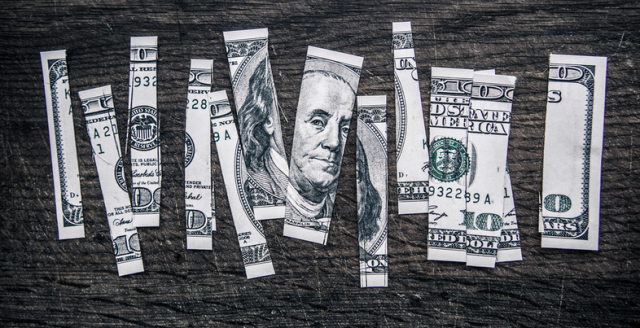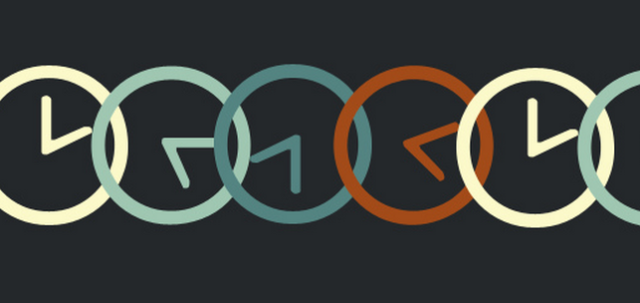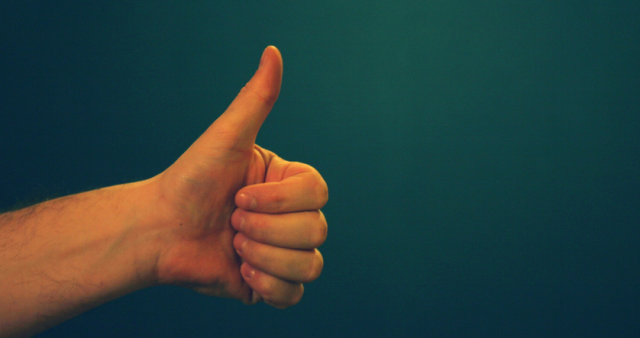When "good enough" is actually good enough, why do we still find ourselves pushed toward perfection, which in turn simply pushes us to waste time? And more importantly, how can we stop ourselves doing this?
In medicine, there's a term called "Minimum Effective Dose" (MED). This is the minimum amount of treatment or medication a patient needs in order for the desired results to be achieved.
If you suffer from hay fever, around 10mg of Loratadine (the general off-the-shelf dose in the UK) is usually the MED to see symptoms considerably reduced. In most cases, a little more than this may not necessarily be harmful, but would still be classified as an Effective Dose (ED), despite much of the active ingredient being superfluous.
Over the top. A bit of a waste... if you like to use other synonyms.
Medical trials help us understand when enough really is enough. But when it comes to our own personal decisions, we lack the big data of the big pharma-oligarchy to know when we're reached the MED.
But what if we could actually use the idea of Minimum Effective Doses to help us remove that need for perfection? What if we could get rid of the superfluous that's infuriatingly hard to ignore these days?
Four coffees when three is more than ample, anyone?
The Minimum Effective Dose (MED)
As Tim Ferriss explains in his book The 4 Hour Workweek,
"Anything beyond the MED is wasteful. To boil water, the MED is 212°F (100°C) at standard air pressure. Boiled is boiled. Higher temperatures will not make it 'more boiled'. Higher temperatures just consume more resources that could be used for something else more productive."
In an article on the subject of MEDs, sociologist Christine Carter talks about how she uses this concept to effectively find more than 24 hours in a day.
I had to find the MED in everything in my life: sleep, meditation, blogging frequency, checking my email, school volunteering, homework help, date nights...[because] unless we like feeling exhausted and overwhelmed, we need to accept that more is not necessarily better and that our go-go-go culture, left unchecked, will push us not only beyond our MED — but beyond the "maximum tolerated dose," the level at which an activity (or drug) becomes toxic and starts causing an adverse reaction.
It's about time we stopped trying to do everything, attend every invite, read every blog post and newspaper, or create the perfect presentation when it's not really needed. This need to do everything, all the time, is holding us back. The idea of the Minimum Effective Dose can help to alleviate us from this by simply forcing ourselves to ask "What can I actually reduce this to while still achieving my aims?"
In general, you'll be able to remove a lot more than you think.
Example: Reducing Excessive Spending
To get more into the meat and potatoes of this, a close friend (let's call him Percy) recently tried out the MED concept to help curb some excessive spending. In Percy's eyes, the more he spent on a night out, the more fun he was bound to have. For three months, he tracked some pretty rudimentary data about his evenings of debauchery. This included who he went out with, where he went, how long he was out for, what he spent, how much he drank, and how much fun he had.
Then, by compiling a few quick charts in Excel, he could see clearly that neither the prestige of the bar nor the amount of dollars spent had any correlation whatsoever to the amount of boisterous fun that was had.
Instead, Percy learned a few aspects of what the MED for a good night out is for him. He knew which people he had most fun hanging out with, and that evenings involving quieter, more conversation-friendly places lead to a better night than those with pounding music. He also learned that a heavy night of drinking up until midnight was no better than a tee-total soiree into the small hours.
This is not say that we should reduce friendships to a set of data on a spreadsheet. But simple exercises like this help to focus on what actually matters. This helps us make better decisions in the future.
If Percy now receives an invitation to a party involving ear-splitting music, cheap lager and none of the friends he has most fun hanging out with, he's able to make a more educated decision about it. If he wants to plan his own night out, he knows who to invite, and the kind of places to go to ensure it'll be a blast.
Example: Reducing Time in Your Inbox
As another example, two years ago, I experimented with reducing the number of times I replied to email each day to the bare minimum. I wanted to find my own MED for inbox checking. This vicious cycle of wanting to reply to emails as quickly as possible came from the mistaken presumption that this "busy work" somehow made me more productive.
I started reducing the number of times I checked my inbox. First, down to once per hour. Then down to just four times per day. When I went down to just once per day, I started to receive a couple of emails each week asking 'Did you receive my email?'. That's when I knew I'd gone too far. The reduction was starting to affect how people saw my work. So, the Minimum Effective Dose for checking my emails therefore, was twice per day.
I added a signature to each of my emails explaining that I only check email twice per day (just to give people a heads up). In the two years that have passed, I've not had one problem, nor lost one dime due to this reduced time in my inbox. Though I did gain plenty of additional hours.
But there are tons of other examples of how you can use the MED idea in day to day life. By realizing where you may be going "too far" -- where you're spending too much time, money or energy -- you should be asking yourself,
"What's the minimum effective dose to get me to where I want to go without having any net negative impact?"
This somewhat minimalist approach to life will have a profound impact to how you think about your decisions.
The World Is Your Oyster
- What's the fewest number of time you really have to check your phone each day, to ensure any urgent fires are extinguished?
- What's the minimum number of reps you need to do on the bench press to ensure you're progressing, while minimizing the risk of injury? Do you really need to be doing 5 sets, when 3 sets will be just as effective? (there are some arguments against using the MED method for exercise, though)
- Is there a way you could limit the number of inefficient meetings you attend without any negative consequences?
- Does this presentation really need to be 20 slides long when you could get the required information across in 10 slides, and in half the time?
- What's the least amount of consistent sleep you need to perform optimally?
- Which social media profiles are really necessary to your life? Do you really need that Google+ account? Is Twitter bringing any benefits to you? Could you be spending that time better elsewhere?
- What's the baseline income you need to earn to actually live the lifestyle you want? Is it worth the effort to earn more than this?
- Are there any projects you could drop while still feeling fulfilled and moving forward?
- Why are you subscribed to 7 productivity podcasts and 22 blogs, when you get most of your useful and inspirational information from just five of these?
- Why on earth do you need to read three different newspapers each day?!
The applications are limitless.
Apply This Today
In Christine Carter's words "The first step in dialing back the busyness of everyday life is to figure out your minimum effective dose of everything".
This is a very similar principle to the philosophical idea of Ockham's Razor, where it's deeply frowned upon to introduce something that's just not needed. Why introduce the idea of a ghost, when the principles of physics explain a phenomena just fine? Why buy yet another shirt when you already have twelve? Why pay an extra $200 for a slightly better laptop when the cheaper one will do everything you need?
When you start to ask yourself these questions, you'll often be horrified by the amount of unneeded activity you waste your time on every day.
In many cases, simply asking yourself the above question will be enough to help you simplify and apply a MED, but other times you'll need to actually measure some of your personal data. To help with this, find an app like Loggr which enables you to set up your own questions to track each day (or multiple times per day), think about the data you need to collect in order to gain some valuable insights, and start tracking.
Find out where you're putting in extraneous effort and money without added benefit. Use this data to make valuable, meaningful changes to how you spend your time (fingers crossed that reading MakeUseOf will remain on your reading list!).
Which Minimum Effective Dose would you like to find first?
Image Credits: Pills by Matza (Flickr), Money by Tax Credits (Flickr), Time by Sean MacEntree (Flickr), Oyster Gardening by U.S. Army Corps (Flickr)





